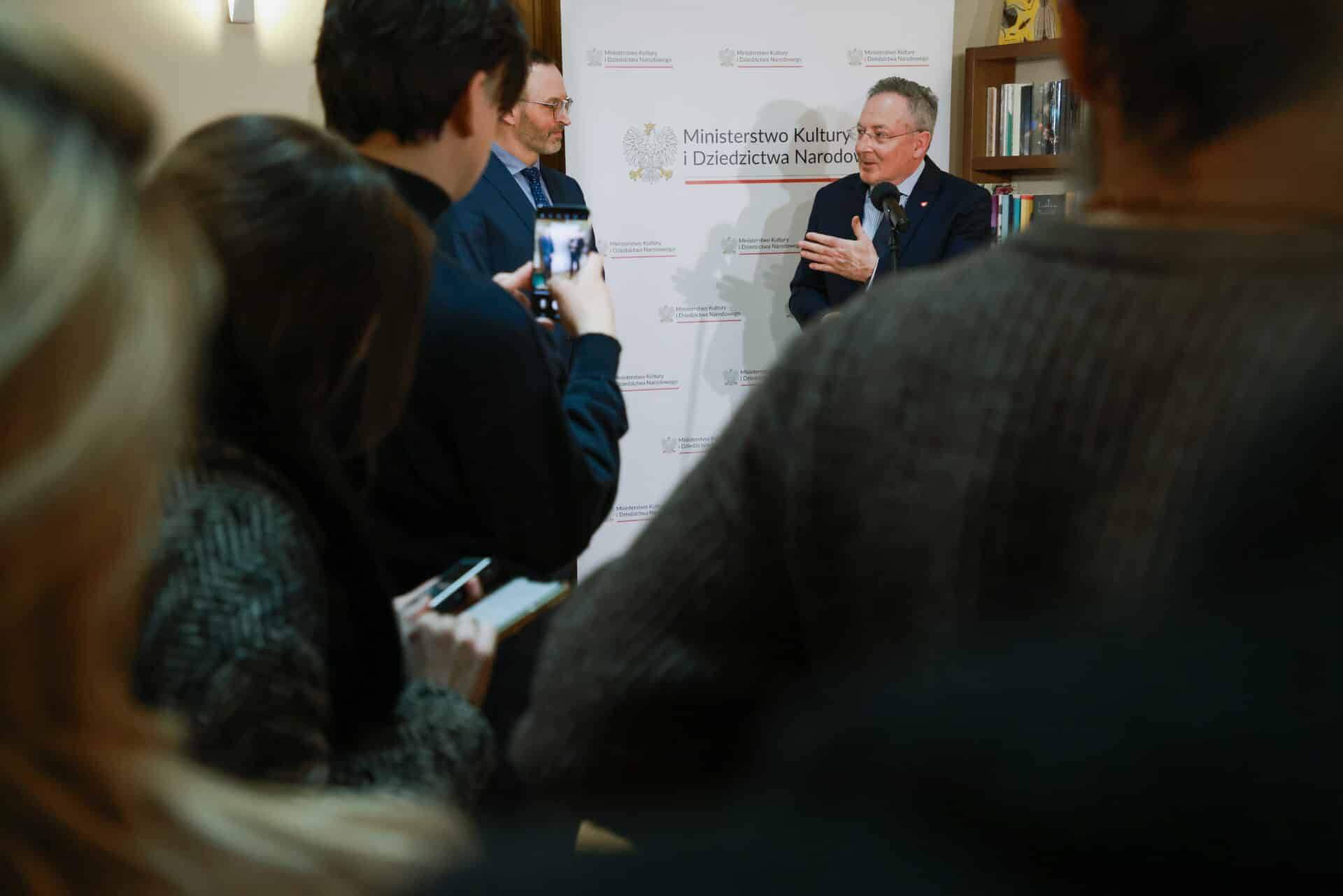Grants for Krakow’s cultural institutions from the European FEnIKS program will invigorate local communities. Krakow will also become the headquarters for a new, nationwide institution supporting the world of literature – the new Book Institute aims to integrate communities and promote reading in Poland.
This will be tremendous support for Polish culture. The first tranche of 470 million PLN from the European FEnIKS program has already been allocated to institutions. The fund is intended to stimulate the integration of communities with cultural institutions. Its second goal is to increase the attractiveness of museums, cultural sites, and tourism appeal. We hope that by focusing on smaller towns and subsidizing their cultural goods, we will stop the outflow of residents. Regardless of the size of the community, cultural life will simply be at a much higher level – said Bartłomiej Sienkiewicz, Minister of Culture and National Heritage, at a conference in Krakow.
FEnIKS Revitalizes Cultural Life in Krakow
More than 107 million PLN from the European Funds for Infrastructure, Climate, Environment 2021-2027 Program (FEnIKS) will go to Krakow. In the first round of applications to the Program, two Krakow projects received funding: over 76 million PLN for the “Modernization and expansion of the former Światowid cinema building for the needs of the Nowa Huta Museum” carried out by the Historical Museum of the City of Krakow, and over 31 million PLN for the National Museum in Krakow project “The Czartoryski Princes Library – expansion and reconstruction of a branch of the National Museum in Krakow.”
The main goal of the Historical Museum of the City of Krakow project is the reconstruction and expansion of the former “Światowid” cinema building, along with changing its use and introducing contemporary museum functions for the Nowa Huta Museum – a branch of the Historical Museum of the City of Krakow. As a result of the project, the entire building will be restored to use and adapted to perform cultural functions. The forgotten space will transform into an attractive spot for residents with a rich cultural and educational offer.
The second project, carried out by the National Museum in Krakow, will allow for a general renovation of the Czartoryski Library building. Currently, it houses unique collections, but the library itself is in very poor technical condition. In addition to the renovation, specialists will conduct necessary conservation of the collections.
What Will Happen After the Merger of the Book Institute and the Institute of Literature?
A significant change for the literary world is the plan to merge the Book Institute and the Institute of Literature into one institution, which will consolidate efforts towards the promotion of reading and literature in Poland.
Until now, reading in Poland was in decline. That is changing. Young people are reaching for books. Missing this unique moment would be a great loss. One strong organization aims to restore reading to its proper level – said Bartłomiej Sienkiewicz, Minister of Culture and National Heritage.
Currently, both Institutes are undergoing an audit. The process includes a detailed financial, employment, infrastructure, and programmatic analysis. All key decisions, including those related to content, staff structure, and finances, will be made based on detailed analyses and discussions with employees of both institutions.
The merger process is expected to be legally and partially functionally completed by May 31, 2024. Grzegorz Jankowicz, the current ministerial commissioner for the merger of the Book Institute with the Institute of Literature, will lead the new Book Institute.
What Will the New Book Institute Be Responsible For?
The goal of the new Book Institute is to unlock the literary space and create an institution that will efficiently animate this sphere, helping in various ways. It is important to expand the target group that receives funds for literary activities. For the last eight years, these subsidies were distributed in a glaringly uneven manner.
Integration of the literary communities, which today include not only writers but also readers, publishers, critics, those involved in the book market, bookstagrammers, and booktubers, is also crucial. Joint discussions aim to mitigate the effects of the current operating model of institutions, which did not serve either the literary communities or the publishing market, leading to conflicts and inefficiencies.
Another issue for the Book Institute to address is the development of artificial intelligence and publications generated with it. The rapidly developing technology poses new challenges for the creative process and copyright laws. Addressing the needs of a dynamically changing reading market is necessary.
All tasks of the new Book Institute will need to be carried out very effectively, with an emphasis on effective protection for Polish authors. We face many challenges – said Grzegorz Jankowicz, the current ministerial commissioner for the merger of the Book Institute with the Institute of Literature.
Organizing matters related to patronage magazine editorials, establishing a fixed book price for a year from its publication, and a book law are key in the coming months for the national institution’s activities.
